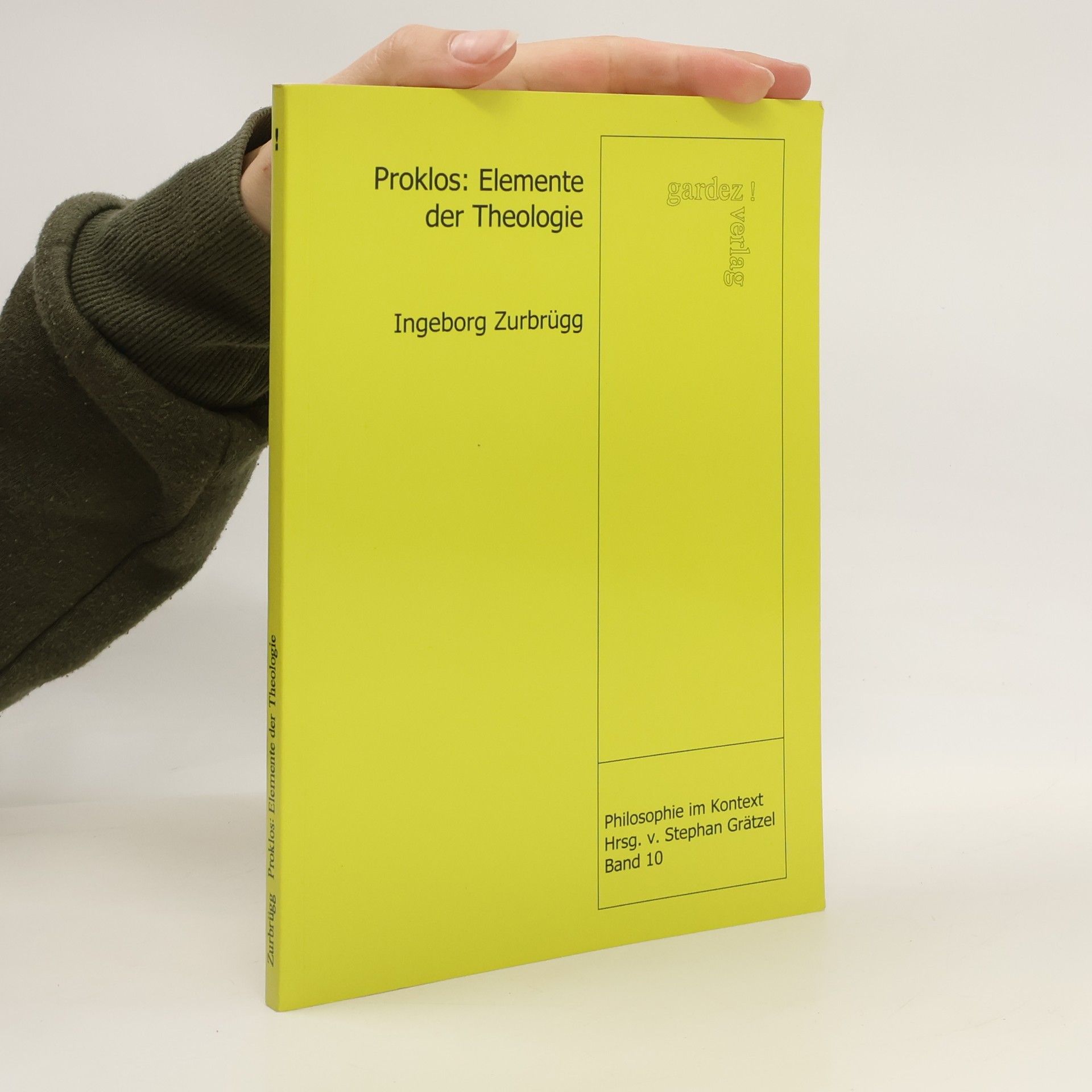Featuring a precise and scholarly translation, this volume delves into a significant work of Platonic philosophy from late antiquity. It emphasizes clarity and rigor, making it accessible for readers interested in the complexities of Platonic thought and its historical context.
Proclus Livres
Proclus était un philosophe néoplatonicien grec qui a développé l'un des systèmes les plus élaborés et complets du néoplatonisme. Son œuvre représente l'apogée du développement philosophique classique et a profondément influencé la philosophie occidentale médiévale. Considéré comme l'un des derniers grands penseurs classiques, les idées de Proclus continuent de résonner. Son approche systématique de la philosophie a laissé une marque indélébile dans l'histoire de la pensée.





Sallust, On The Gods And The World: And The Pythagoric Sentences Of Demophilus, Translated From The Greek
- 190pages
- 7 heures de lecture
Proclus
Commentary on Plato's Timaeus: Volume 1, Book 1: Proclus on the Socratic State and Atlantis
- 360pages
- 13 heures de lecture
The first volume of Proclus' Commentary on Plato's Timaeus offers a detailed interpretation of Plato's work, exploring its philosophical implications and metaphysical concepts. Proclus, a prominent Neoplatonist philosopher, delves into the intricacies of Timaeus, providing insights into the nature of the universe, the role of the Demiurge, and the relationship between the material and the divine. This translation aims to make Proclus' profound analyses accessible to modern readers, enriching their understanding of classical philosophy.
Diese späte Schrift des Proklos (412-485) bietet die umfassendste Darstellung der neuplatonischen Metaphysik. Neben seinen einflussreichen Kommentaren zu den Platonischen Dialogen verfasste Proklos eigenständige philosophische Abhandlungen, in denen er unabhängig von der Auslegung platonischer Texte agiert. Die Theologische Grundlegung (Stoicheiosis theologike) kommt sogar ohne direkte Verweise auf Platon aus und spiegelt Proklos’ eigene metaphysische Logik wider. In 211 Kapiteln, die nach dem Muster einer allgemeinen These mit streng logischen Beweisen aufgebaut sind, gibt Proklos einen Überblick über die Prinzipien seiner Metaphysik. In der zweiten Hälfte der Abhandlung bewegt er sich von der höchsten metaphysischen Ebene des Einen und der Henaden zu den Intellekten und schließlich zu den göttlichen Seelen. Interessanterweise wird die menschliche Seele nicht mehr in den Bereich der göttlichen Metaphysik eingeordnet. Die Theologische Grundlegung ist im Kontext des neuplatonischen Schrifttums atypisch und einzigartig. Sie entstand möglicherweise aus dem Bedürfnis von Studenten nach einer prägnanten Darstellung des neuplatonischen Gedankenguts. Diese zweisprachige Ausgabe bietet den griechischen Text in einer neuen Edition sowie eine deutsche Übersetzung ohne lateinische Terminologie, ergänzt durch eine umfassende Einleitung und erläuternde Kommentare von Ernst-Otto Onnasch und Ben Schomakers.
Elemente der Theologie
- 120pages
- 5 heures de lecture